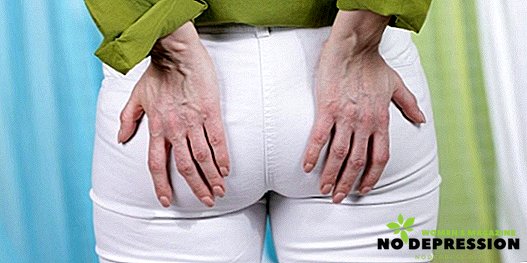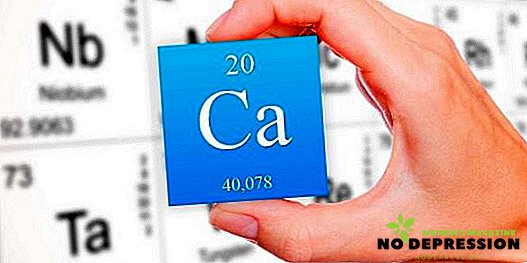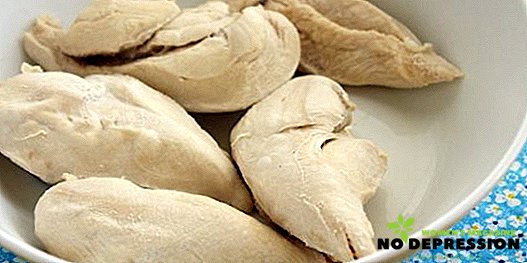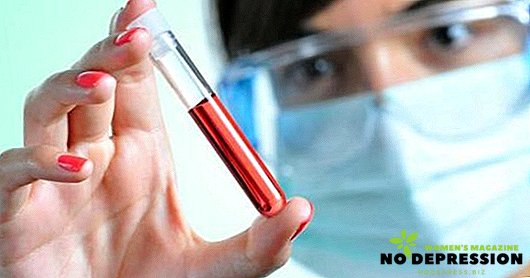Modern doctors treat licorice root with great respect. It is sold at any pharmacy in the form of a thick extract or powdered dry raw material, from which medical decoctions and tinctures are prepared.
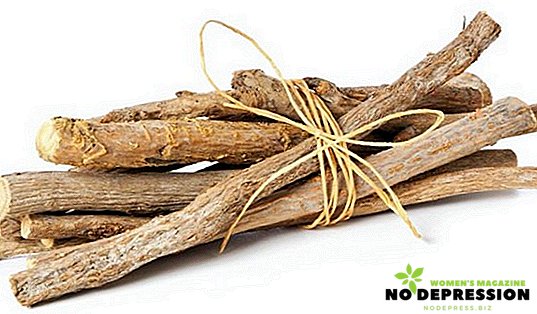
What is licorice
 Licorice (licorice root) refers to perennial herbaceous plants. She loves heat, so the main places of its growth are concentrated in the south: the North Caucasus, the coast of the Azov Sea, Central Asia, the shores of the Volga and the Don.
Licorice (licorice root) refers to perennial herbaceous plants. She loves heat, so the main places of its growth are concentrated in the south: the North Caucasus, the coast of the Azov Sea, Central Asia, the shores of the Volga and the Don.
For therapeutic purposes, use the roots and rhizomes, the harvesting of which mainly occurs in the autumn, when the aerial parts of the plant wither. Roots dig, shake the ground, cleaned from rotten parts, laid out under a canopy or in the dryer. The temperature for drying should not exceed 60 degrees.
In the southern regions, licorice is considered not so much a curative plant as weed grass. Its extensive root system gives a lot of trouble to farmers.
Chemical composition
Licorice preparations have antiviral, expectorant, anti-allergic, anti-sclerotic, anti-inflammatory, laxative, antispasmodic and wound-healing effects. And all this thanks to the substances in its composition.
Chemical composition:
- flavonoids;
- glucose;
- vitamin C;
- glycyrrhizinic acid;
- resins;
- mucus;
- essential oils;
- tannins.
And in the root of the plant contains substances similar in structure to the adrenal hormones - the so-called triterpene compounds. They have a rejuvenating effect on the whole body, for which the licorice root was very much appreciated in ancient China, where it was treated with great respect, as the ginseng root.
Thanks to glycyrrhizic acid, licorice has antiviral properties and is 40 times sweeter than regular sugar.
Medicinal properties of licorice root
 The medicinal licorice is indispensable for coughing, respiratory tract infections, diseases of the gastrointestinal tract. She, by the way, can help strengthen the immune system and relieve fatigue.
The medicinal licorice is indispensable for coughing, respiratory tract infections, diseases of the gastrointestinal tract. She, by the way, can help strengthen the immune system and relieve fatigue.
Five medicinal properties of licorice:
- Anti-inflammatory, expectorant (for coughing, bronchitis, respiratory infections).
- Antiviral (for colds, ARVI, flu).
- Antispasmodic (with gastritis with high acidity, duodenal ulcer and stomach).
- Laxative (eliminates constipation).
- Antiallergic, antihistamine action (with bronchial asthma).
In addition, flavonoids, which are rich in licorice, are considered the best natural antioxidants that perfectly protect against oncology.
Indications for use
In modern medicine, breast preparations with licorice root or thick extract are used for expectation of diseases of the upper respiratory tract, and for bronchial asthma, as antiallergic. In addition, licorice root preparations are recommended for gastric and duodenal ulcers, gastritis, eczema, allergic dermatitis and psoriasis.
The use of licorice root in scientific and folk medicine

Since ancient times, licorice used in medicine. It is mentioned in medical books and drug lists, starting in the Middle Ages. To this day, it is present in the composition of the laxative, diuretic and antihemorrhoic charges as a substance that enhances the action of all the components included in these fees, which improves the bitter taste of herbal mixtures.
Pharmaceutical preparations
Medicines with licorice root can be easily found on the pharmacy shelves. They have an immunostimulating, anti-inflammatory and expectorant effect and can bring many benefits in the treatment of many diseases.
Well-known pharmaceutical drugs:
| A drug | Indications for use | pharmachologic effect | Mode of application | Side effects |
|---|---|---|---|---|
| Liquiriton (tablets) | Peptic ulcer, hyperacid gastritis | Anti-inflammatory, antispasmodic | Before meals for 20-30 minutes 1-2 tablets 3-4 times | Allergic reactions |
| Flacarbin (granules) | Gastric and duodenal ulcer | Anti-inflammatory, antispasmodic, firming and laxative | Before eating, drinking water, for ½ tsp. 3 times | Allergy to the components of the drug |
| Glyciram (tablets or dosage granules for children) | Respiratory disease, allergic dermatitis, adrenal insufficiency | Anti-inflammatory, expectorant, laxative, antispasmodic, stimulation of the function of the adrenal cortex. | 30 minutes after a meal, 1-2 tablets 1-2 times | Allergic reactions to the drug |
| Licorice syrup (bottle) | Infection of the respiratory tract, gastritis, gastric ulcer, 12 duodenal ulcer | Anti-inflammatory | 10-15 g per 200 ml of water, 1 tbsp. 3-5 times | Allergy |
Despite the effectiveness of the presented drugs, they are not suitable for everyone, so they can only be taken on doctor's orders.
Decoction
 To prepare the broth, the crushed raw materials must be brewed with water, insisted on a water bath, then filtered, taken in a tablespoon up to four times a day. With a strong cold, it is allowed to prepare a more concentrated decoction.
To prepare the broth, the crushed raw materials must be brewed with water, insisted on a water bath, then filtered, taken in a tablespoon up to four times a day. With a strong cold, it is allowed to prepare a more concentrated decoction.
Broth Recipes
- It will take: 10 g of licorice root, 250 ml of boiling water. What to do: fill the licorice with boiling water, hold for 20 minutes in a water bath, cool, strain through gauze, then bring to the original volume with cooled boiled water. When you cough daily intake: 20 ml (1 tablespoon) 3-4 times.
- It will take: 15 g of ground root, 1 cup of boiled water. What to do: pour ground root in water in a saucepan, put in a boiling water bath (30 minutes). Then insist the broth (10 minutes), filter, pour boiled water, bringing the broth to the initial volume. To improve the discharge of sputum, a daily intake of 20 ml 4-5 times is prescribed.
- Required: 2 tbsp. chopped root, 300 ml of boiling water. What to do: in an enamel saucepan, brew the chopped root with boiling water, leave for 20 minutes. With a strong cold after 20 minutes, half of the drug to drink, and after 30 minutes - the rest.
Powder
Powder of licorice root can be bought at a pharmacy or prepared on your own by grinding the dried root in a coffee grinder. This dosage form has a sweetish taste with bitterness, has a yellowish-green hue.

Powder from this plant helps to cope with diaper rash, heals wounds, strengthens the protective functions of the body and regenerates the skin. It is used for constipation to gently cleanse the intestines.
The powder is effective against nausea, heartburn, spasms in the throat and dryness, has anti-inflammatory effect. Great for treating acute and chronic pharyngeal diseases.
To the note: the pharmaceutical preparation for the treatment of constipation in the form of powder from licorice root with the addition of leaves of the Seine, fennel seeds, and purified sulfur enhances the laxative effect and gently cleanses the intestines.
Tincture
All medicinal properties of licorice are stored in alcohol tinctures. Grind dry roots, pour with alcohol or high-quality vodka. For the preparation will require 1 part of raw materials and 5 parts of alcohol. Roots put in a glass jar, pour in alcohol (vodka). Put in a dark, cool room for 20 days. Filter the finished tincture of alcohol, stored on the shelf of the refrigerator. Tincture of licorice root normalizes the endocrine system, calms, relieves nervous tension, thereby beneficially affecting the immune system.
Contraindications and side effects
 Licorice root contains substances with expectorant action. Therefore, it is in the composition of candies and cough preparations, the treatment of which is very popular in our country. But with all the advantages, this herbal medicine can be harmful.
Licorice root contains substances with expectorant action. Therefore, it is in the composition of candies and cough preparations, the treatment of which is very popular in our country. But with all the advantages, this herbal medicine can be harmful.
First of all, you need to take precautions for allergies. Although the reaction to licorice - a rare phenomenon, but still it occurs. If you have a course of treatment with herbal medicine, you should start with one tablespoon. It is necessary to gradually increase the dose, if the body responds well, then you can continue taking.
Often, treatment with licorice leads to exacerbation of another disease. A typical picture: a person takes cough licorice and his blood pressure rises sharply, urination becomes difficult, edema appears. With a tendency to hypertension and during pregnancy, licorice can not be used. If it is included in the fees that are recommended for the treatment of the underlying disease, they must be replaced.
When interacting with other drugs, licorice can give an undesirable effect. It is not recommended to use simultaneously with diuretic and cardiac drugs. Long-term use may lead to an increase in blood pressure, fluid retention, edema, and weakening of potency.



